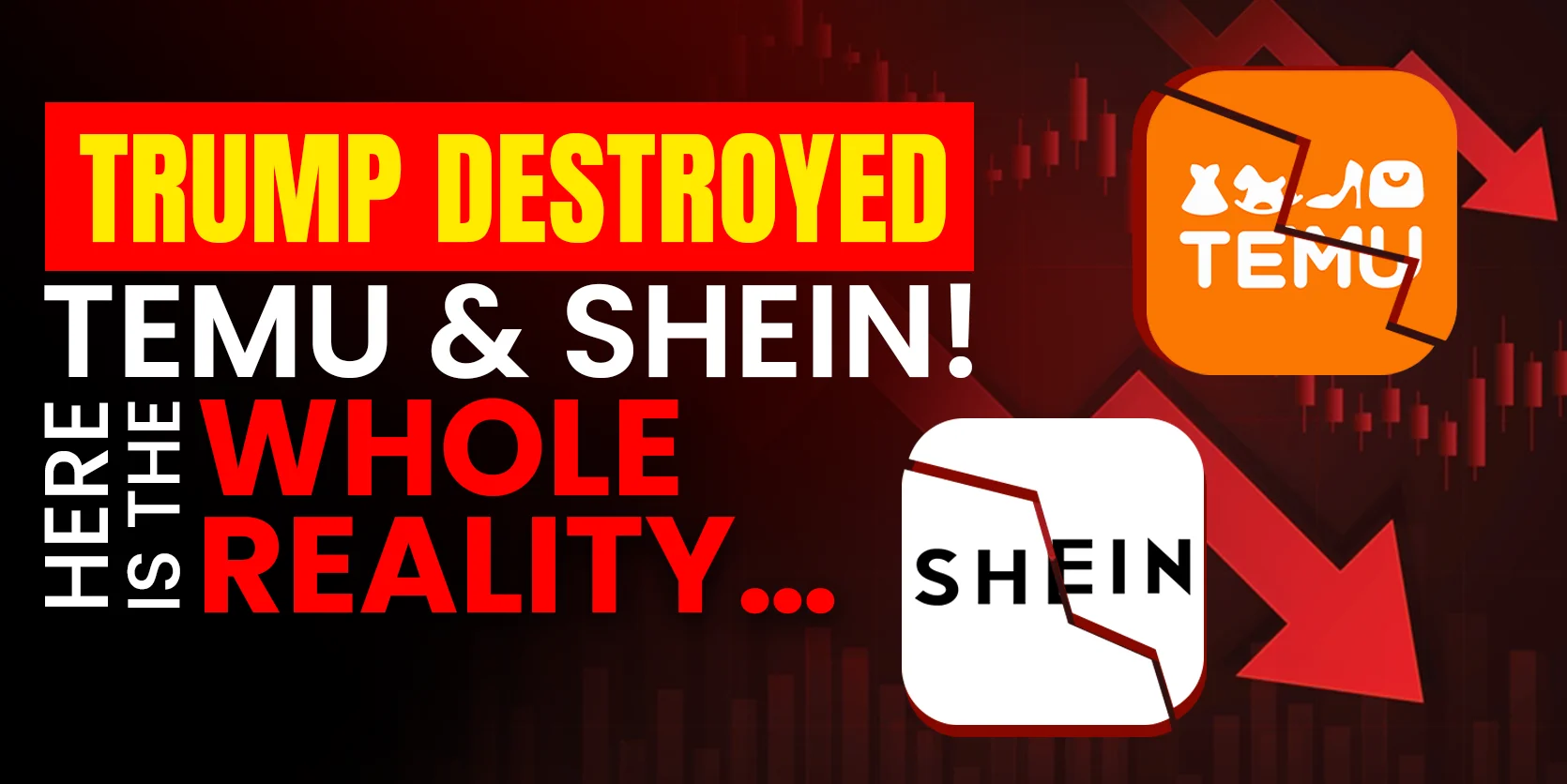Newly elected president of the U.S.A. Donald Trump just shut the door on Chinese retailers by closing the “de minimis” loophole. For emerging giants Shein and Temu, this is a massive blow.
And it also means a lot to the US-based online sellers. Because they were worried as these Chinese retailers have been taking advantage of the loophole for a long time.
Now, the game has changed. Shutting down this loophole isn’t just a win for U.S. sellers—it’s going to shake the entire landscape of U.S. eCommerce. And, those Chinese companies need to rethink their business strategies because of this new policy change.
Table of Contents:
- What is the groundbreaking policy change made by President Donald Trump?
- What are the Impacts of this Policy change and how Chinese retail giants like Temu and Shein are planning to stay in business?
What is the groundbreaker?
With an executive order, the president has closed the so-called “De Minimis” loophole. It allowed any package under $800 to bypass customs—no import taxes, no real inspections, no questions asked.
For Chinese retailers like Shein and Temu, this was a goldmine. They could ship products straight from their factories to American buyers tax-free, while U.S. companies like Target and Walmart had to pay billions in import duties. The result? American businesses were bleeding, while Chinese sellers thrived.
As a result—over a billion packages slipped into the U.S. in 2023 without paying a single cent in tariffs.
Early this month (February 2025) President Trump signed an executive order stating de minimis treatment “shall not be available” for products made in China. The U.S. Postal Service (USPS) is already collecting taxes and facilitating other inspections for those products.
The de minimis loophole? Gone! Every little shipment coming from China? Now taxed.
The Impact:
After the presidential order, the free ride is over for the Chinese sellers. Every package, no matter how cheap, will now be taxed and inspected like the rest. Shein and Temu are scrambling. American businesses might finally get a fair shot.
No more backdoor deals. No more tax-free packages flooding the U.S. market. Every package—whether it’s $5 or $500—would now be taxed and inspected like the rest.
The aftermath was immediate.
Temu and Shein faced logistical nightmares. With new tariffs in place, their razor-thin margins were threatened. Investors panicked, their stock values took hits, and for the first time in years, their dominance in fast fashion was in jeopardy.
American businesses, on the other hand, saw a glimmer of hope. With the loophole closed, local manufacturers and retailers had a fighting chance. Products made in the U.S. could finally compete on a level playing field.
Temu & Shein Already Prepared:
While people are thinking, this policy change can destroy emerging giants like Temu and Shein. But experts say, those companies can avoid this danger and survive. Even they were already prepared for such dangers.
Shein started changing its shipping strategy years ago. It started fulfilling more of them from US warehouses. Temu also began allowing US-based vendors to sell on its marketplace in 2024 and they are serious about it.
Now, it is promoting items shipped from U.S. warehouses more prominently in its app after President Donald Trump’s decision.
Products from those vendors are designated with a “local” badge on their listing page and in search results. These strategies reduce reliance on de minimis shipments and keep them safe from the impact of the rule change.
Strengths of Temu and Shein:
- Experts say the brands will survive despite de minimis changes because their core success comes from low prices and trendy products, not just duty-free shipping.
- Shein’s fast-fashion model, which partners with manufacturers to produce small batches, remains a key competitive advantage.
- Some price increases and longer shipping times are expected due to the added customs clearance process.
A Different Angle!
Another thing is de minimis rule has closed only for China. Other countries can still take advantage of this loophole. China might use another country to ship products into the U.S.A.
For example, if China sends a package to Mexico, and changes the label, then it crosses the US border, maybe it can avoid this rule. As China is already using Mexico as a backdoor to enter the USA. There are Mexican manufacturing plants built with Chinese capital.
Or, another Temu-like company that is not Chinese, may be from India, it can still be able to get advantage of the loophole.
Final Thought:
I think, despite the crackdown on the minims shipments, Shein and Temu are far from doomed. Their ability to adapt—whether through local fulfillment centers, U.S.-based sellers, or their ultra-efficient supply chains—will keep them competitive. While customers may see slightly higher prices or longer shipping times, the core appeal of these platforms remains intact. For more e-commerce insights, visit info@ecomclips.com.

